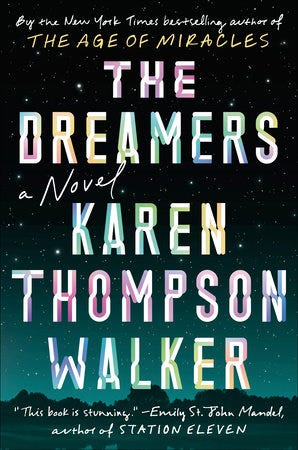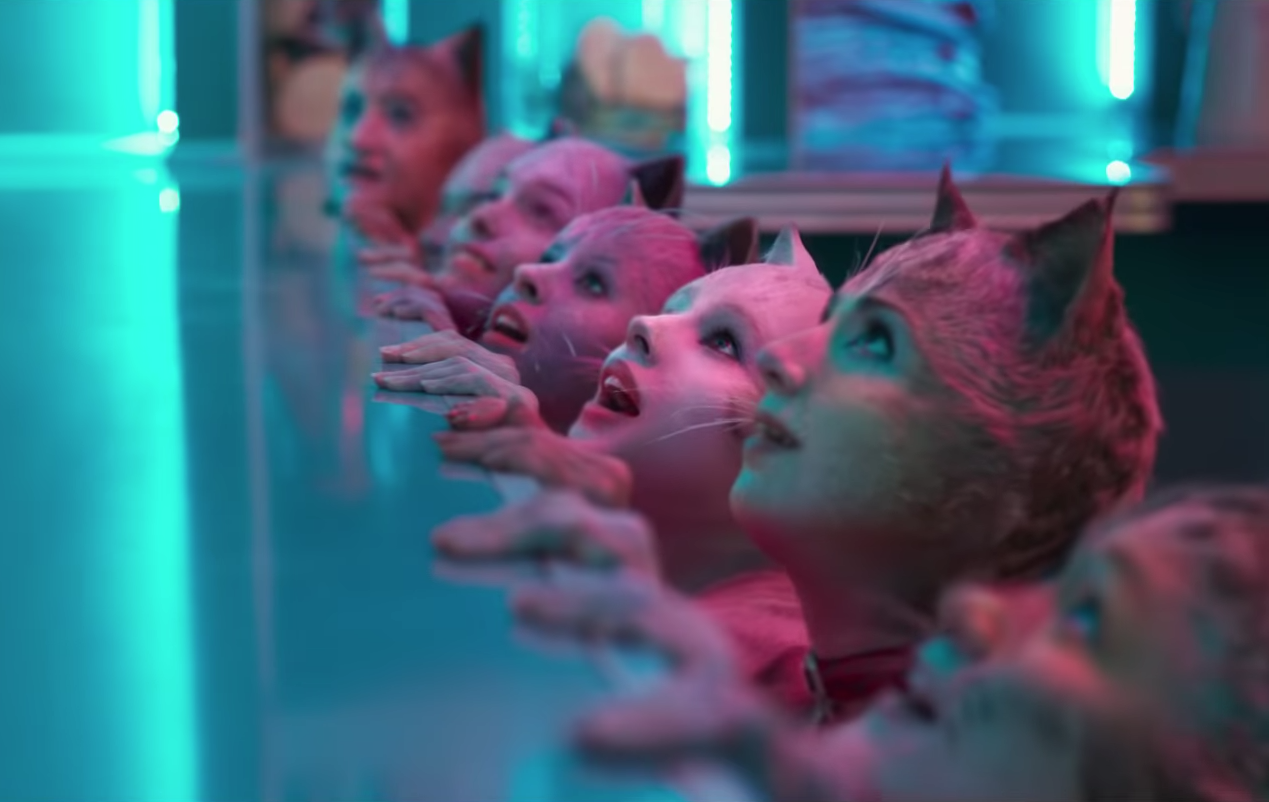Interviews
Karen Thompson Walker Turns Sleep Into an Infectious Illness
In “The Dreamers,” residents of a college town fall into a deep sleep they can’t wake up from

Over the course of two books, Karen Thompson Walker has thrown readers into a reality where horrific events take place. First, the Earth’s rotation stopped spinning in The Age of Miracles. In The Dreamers, she returns with a different, but just as frightening epidemic. Instead of the impending doom of the entire world like her last book, she narrows her scope to a mysterious sleeping sickness where people never wake up.
Walker explores a small college town where people begin to fall asleep and have lucid dreams that feel left up to the reader’s interpretation. Are they of the past, mistakes that haunt the dreamer? Or are they of the future’s possibilities? It’s an unsolvable mystery that begins to raise questions of what our reality is. Is our life only lived when we’re awake or do we live it when we’re asleep as well?
Throughout reading The Dreamers, I couldn’t help think about what I feared, the nightmares that followed me from adolescence to adulthood, and how I’d face the unknown. While it would be easy to run away with unrealistic fantasies, Walker kept her horrors grounded. The reality of these people’s lives made me shudder at what would happen if the creeping ideas in the back of my brain were actually real.
Karen Thompson Walker and I spoke on the phone about how fear motivates storytelling and what this moment in time has shown us about human nature.
Adam Vitcavage: Both of your books deal with an unknown horror of sorts. What draws you to such frightening events?
Karen Thompson Walker: I’m not sure these horrors preoccupy my thoughts, but I do think what interests me as a writer if I am able to write about what happens to ordinary people in such extreme situations.
AV: In your 2012 TED Talk, just after Age of Miracles was published, you discuss how fear can teach us storytelling.
KTW: Right. I don’t write exactly directly about things I’m fearful about. It’s habit for us to think about the worst things that can happen to us. In fiction, that becomes useful to be able to intricately imagine stories with a frightening premise. This book has an extra layer where you can get out of the more ordinary fears we have in this 2019 reality. The sleeping sickness brings an extra sense of wonder to the frightening possibilities.
AV: For Age of Miracles, you have talked about how you spent a lot of time thinking about the actual effects of what would happen if Earth’s rotation would slow. What was it like talking this fear of falling asleep and never waking up?
KTW: It was about five years of thinking about it. I did a lot of research about sleep. What fascinates me most is that we haven’t figured out why we sleep and dream. There’s a question of what exactly goes on in our minds.
AV: What sort of things did you learn about sleep and dreams?
KTW: One fascinating thing is that people solve real problems they’ve been working on in their dreams. A famous example is August Kekulé, the scientist who figured out the chemical structure of benzene. It came to him in a dream as a snake eating his own tail. He woke up and it solved his research. I think a lot of us are dismissive of dreams, but sometimes they can hold real insight.
I also read about how our brains operate during dreams. The part of our brain that is most involved is emotions. It’s turned up in a way, which makes sense because our dreams can be so intense.
Like I said before, what I find so fascinating is scientists haven’t figured out why we dream. There are theories but it’s not totally clear.
Our fears are based in the real world. If you start with the fantastical and then make the world as real as possible, it lets the readers believe it’s realistic or has the illusion of reality.
AV: Both of your books balance a grounded reality, but allow us to become immersed in a colossal horror we hope never happens.
KTW: Starting with a practical premise. Our fears are based in the real world. If you start with the fantastical and then make the world as real as possible, it lets the readers believe it’s realistic or has the illusion of reality. There is a great quote from Jose Saramago; he’s said that his books are about the possibility of the impossible. If the premise along logical lines then readers can accept the rest.
AV: It’s novels like Saramago’s or yours that can blur the line between literary and genre. Is that something you ever think about while writing?
KTW: What I love about literary fiction are the characters, beautiful sentences, and the language. And what I love about sci-fi and disaster movies are the big premises. Being able to marry the two is very satisfying. I don’t think that much of genre as I am writing. There are sci-fi readers who will think there isn’t enough science and there are literary readers who won’t enjoy the premise. I just hope readers will read it if it sounds interesting regardless of taste.
AV: Earlier you mentioned the ordinary fears we have in 2019. Obviously, you wrote this before the current landscape of political turmoil and whatnot. Does your writing about these types of events help as a way to escape or a way to confront our reality?
KTW: I feel like I am always learning, for better or worse, how governments work and how bad human beings are at dealing with certain kinds of problems like climate. Then also how great humans can be in other kinds of moments like the California fires. There were so many stories of generosity and heroism but then we’re failing on a larger level. There’s just something about this moment in time about what it has shown us about human nature. Thinking about that was at the background of my work. Every time something happens helps inform me about how my characters would react. In The Dreamers there are a few quick sections from people who don’t live in the are and are these conspiracy types. That’s something right out of our reality. There are stories like that happening now where people don’t believe real things.
There’s just something about this moment in time about what it has shown us about human nature.
AV: Are fears and horrors something you see yourself pursuing a lot more of?
KTW: Age of Miracles grew from that question about how our lives would be affected by the Earth stop spinning. Part of that was how sleep would be affected. In a way, The Dreamers grew out of that first book. There’s that connection in a literal sense. In terms of revisiting fears and what happens to a community is a preoccupation of mine.









